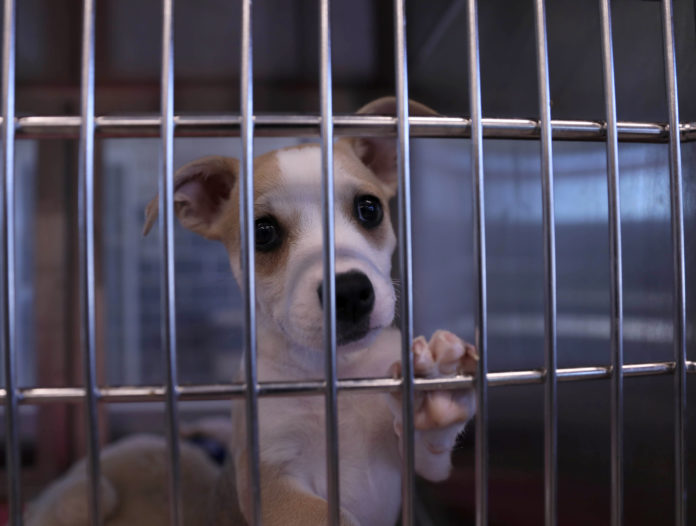
The Waco Animal Shelter, in partnership with The Humane Society of Central Texas, prides itself on being a “no-kill” shelter and an open-admission shelter, but to keep this record rolling, adoptions and fosters are crucial, according to Delfi Messinger, director of animal services for Waco.
“No-kill’ is a real great buzz phrase. It means we never do this, but in fact it’s not really what it means,” Messinger said. “It means that we do not euthanize 90 percent of the animals, so 90 percent of the animals have a live outcome. They either get adopted out, they go to a foster and then become rescued or they’re transferred to another organization so they leave the facility alive.”
The Humane Society of Central Texas handles the outcome, adoption, foster and rescue of the dogs and cats. The animal shelter also helps manage kennel inventory and has a full-time veterinarian who provides health care for the animals. According to the city of Waco website, Waco has owned the animal shelter for over 50 years and entered into a unique partnership with the Humane Society of Central Texas in December 2012. The website says that under the new partnership, live exit rates increased. The Waco Animal Shelter is a regional shelter serving much of McLennan County.
Messinger said the city shelter runs at 100 percent capacity and recently announced its “no kill” status, meaning that 90 percent of the animals that come into their doors are not euthanized. This means that 10 percent of the animals are euthanized, either for a medical reason, behavioral issue or for time and space. Messinger said no animal has been euthanized for time and space since Nov. 10, 2016.
“In the past with time and space, the animal was here for 45 days, and we simply have so many new animals coming in that it got pushed to the top of the list – it had been here for so long that for lack of more time and for lack of space (more kennels), it was put to sleep,” Messinger said. “That’s really our goal, is to have no animals euthanized for this unnecessary reason. That’s why we depend on the community, because if three days were going by and people weren’t coming to look at pets, then we would have to look at time and space, and that’s the one thing we hate to do.”
Messinger said that some nights, staff will bring animals home in order to prevent euthanizing for time and space purposes. In order to help the city shelter, the Humane Society of Central Texas helps spread the word about adoption, with social media being a major outlet to share news and photos. The Humane Society of Central Texas can be found on Twitter, Facebook, Instagram and Snapchat.
Fostering an animal means caring for them short-term, Messinger said. This allows the humane society to learn about the animal through the form that is filled out when someone is done fostering an animal. Adoption means giving the animal a permanent home, although the humane society does allow for return adoption, Messinger said. With return adoption, paperwork must be filled out to explain the situation.
“It’s not that we want every animal to get adopted out because to adopt an animal out to a home that’s not going to be the right fit is almost worse than not doing it at all,” Messinger said. “Our job is to ask the right questions about the person when they come, just to make sure.”
Many students sometimes consider adopting a pet, but Messinger said it’s important to consider the interest of the animal. Adopting an animal requires time, and many times students desire adopting because they miss their pet at home. Messinger advocates fulfilling the need to be around a pet by coming in and volunteering, or fostering for a short time. Messinger said if a person cannot assure a “forever home,” then alternate options should be considered.
“Without a doubt, you have to consider the responsibilities. You get to see the fun aspect, but you do see dogs that don’t behave or don’t listen,” said Houston senior Cat Jackson, founder of Puppy Playtime at Fountain Mall. “Animals are very therapeutic. I encourage anyone to get one, just observe and acknowledge the risks and responsibilities.”
Messinger said the Waco Animal Shelter can always use dog walkers, and the humane society is always looking for volunteers, which isn’t an extreme commitment. Volunteering is not difficult to get into-the orientation is short and volunteers can get started quickly, Messinger said. More information can be found on the Humane Society website.
“We would really love to see students coming here and giving their time to see how they could help us,” Messigner said. “And just to make sure that if they’re thinking about adopting, to think about that phrase ‘forever home’ and to consider fostering.”





